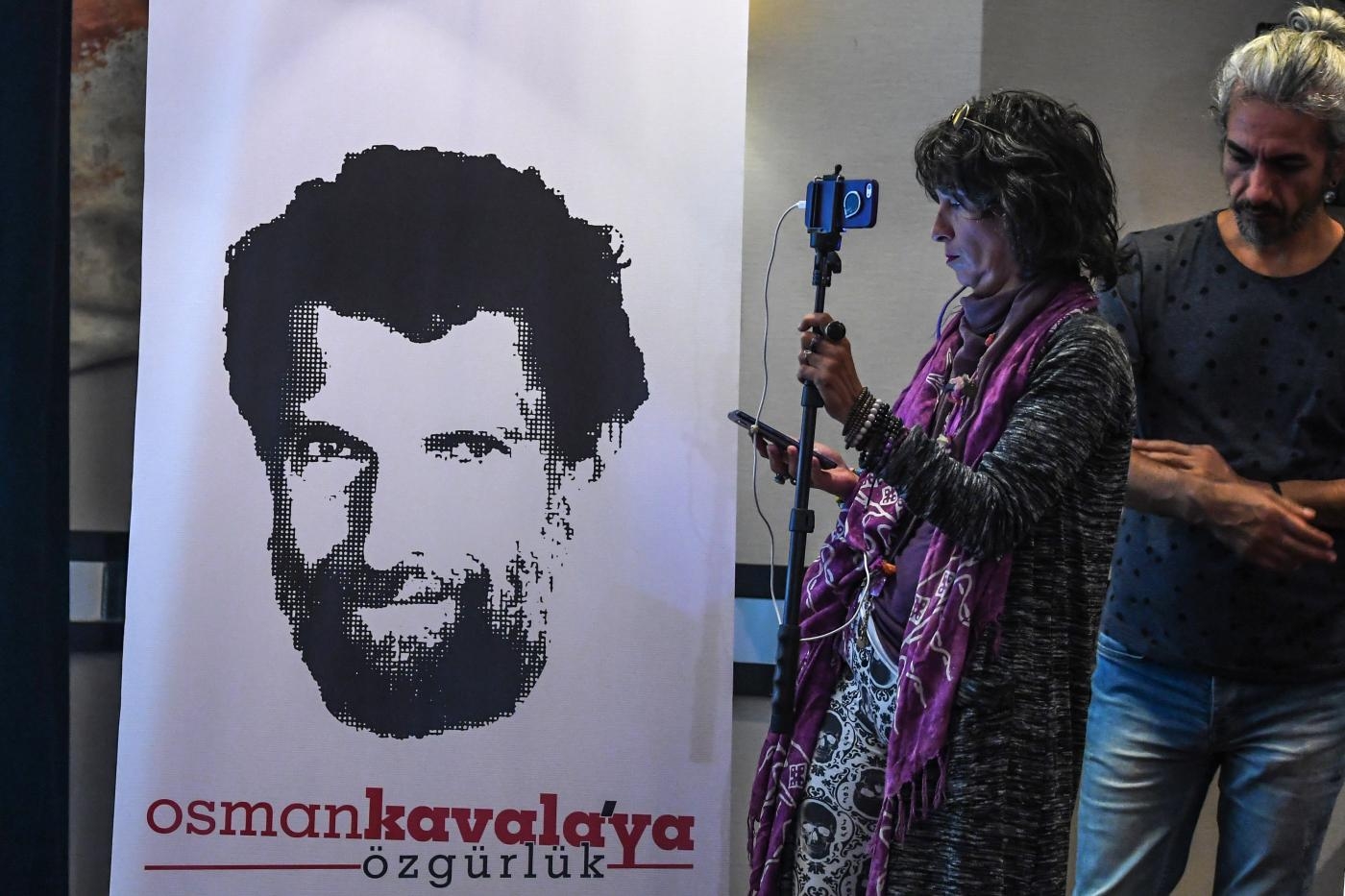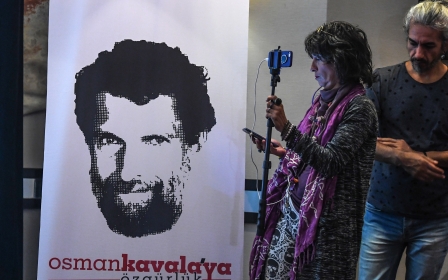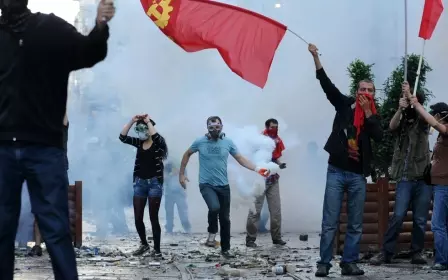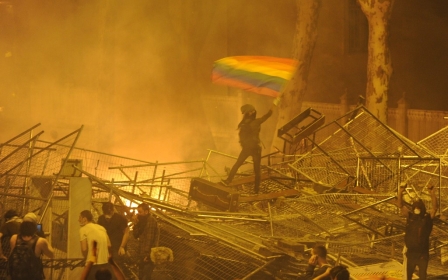Turkish philanthropist Osman Kavala and eight others acquitted in Gezi Park trial

A Turkish court acquitted leading businessman and rights activist Osman Kavala and eight other defendants on Tuesday following a controversial trial over the anti-government "Gezi Park" protests of 2013.
Kavala and two other defendants had been facing life sentences without parole, while the other defendants were accused of aiding them in attempting to overthrow the government by organising the protests.
New MEE newsletter: Jerusalem Dispatch
Sign up to get the latest insights and analysis on Israel-Palestine, alongside Turkey Unpacked and other MEE newsletters
The judge said there was "not enough concrete evidence" against the suspects as he delivered the landmark verdict, which was followed by loud cheers from supporters when Kavala walked free from the courtroom.
The case of seven further defendants - who are abroad and were being tried in absentia - was separated, but arrest warrants for them were lifted, Reuters said.
One lawyer said they were also expected to be acquitted.
Philanthropist Kavala has been in custody for more than two years and the case had drawn strong criticism from Turkey's Western allies and rights groups.
In December, the European Court of Human Rights called for his immediate release, saying there was a lack of reasonable suspicion that he had committed an offence.
According to the indictment, the defendants had prepared for the Gezi Park protests since 2011 and were "top management" organisers.
The 2013 protests originally began as a demonstration against the demolition of one of the last green spaces in Istanbul, but quickly spiralled into an expression of opposition to Turkish President Recep Tayyip Erdogan's rule.
More than three million people were involved in the demonstrations across the country.
'Who is behind him?'
Kavala was chairman of the Anadolu Kultur (Anatolian Culture) foundation, a non-profit organisation founded in 2002 that aims to "develop mutual understanding and dialogue and overcome regional differences and prejudices" in Turkey and the wider region.
He has repeatedly been accused of having links to the Hungarian-born financier George Soros, blamed by some governments for fomenting unrest and promoting "globalist" politics.
"Who is behind him? The famous Hungarian Jew Soros," said Erdogan in November, 2018.
"This is a man who assigns people to divide nations and shatter them. He has so much money and he spends it this way."
That same month, Soros's Open Society Foundations said it would cease activities in the country following Erdogan's comments.
Middle East Eye delivers independent and unrivalled coverage and analysis of the Middle East, North Africa and beyond. To learn more about republishing this content and the associated fees, please fill out this form. More about MEE can be found here.




